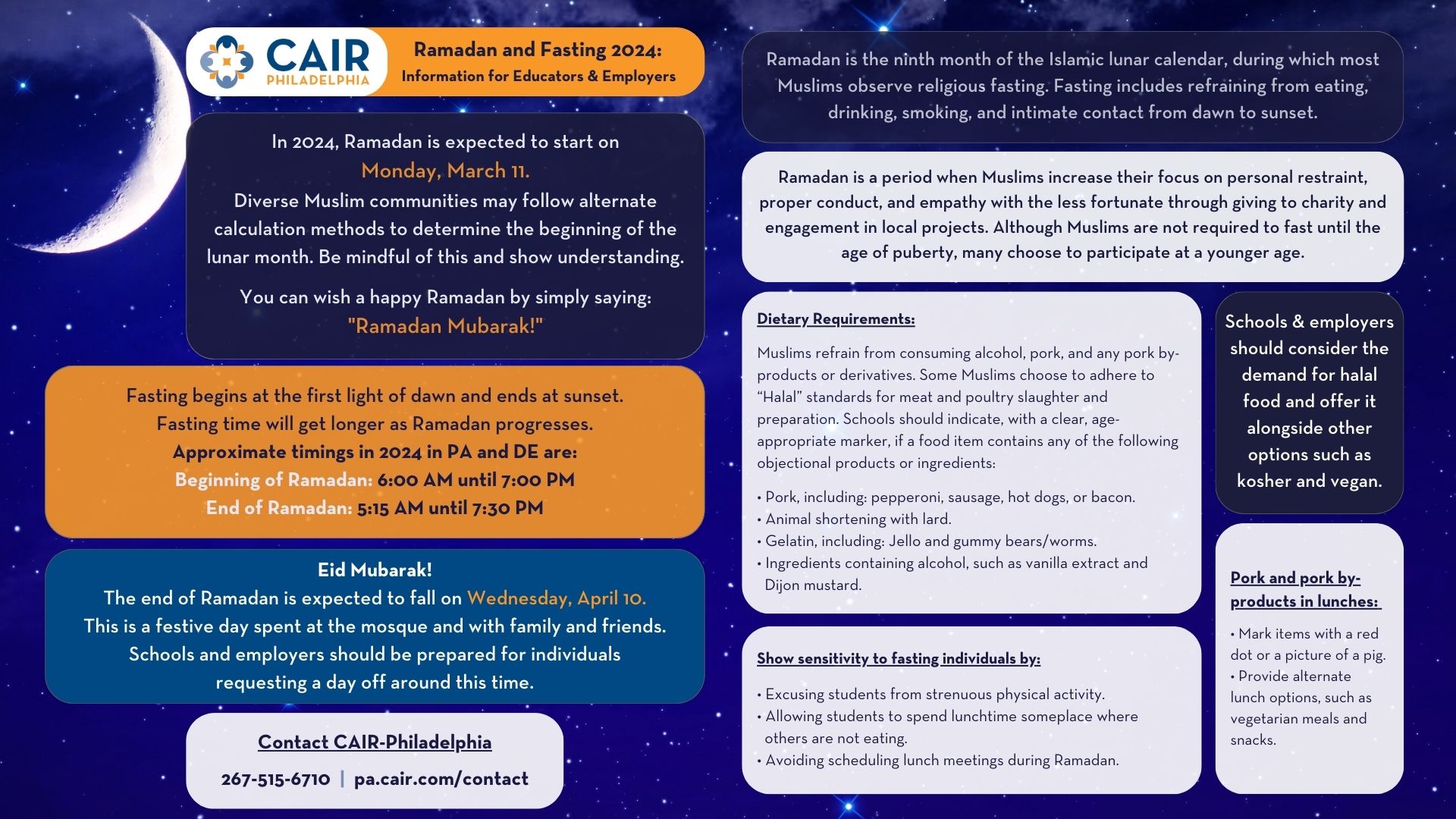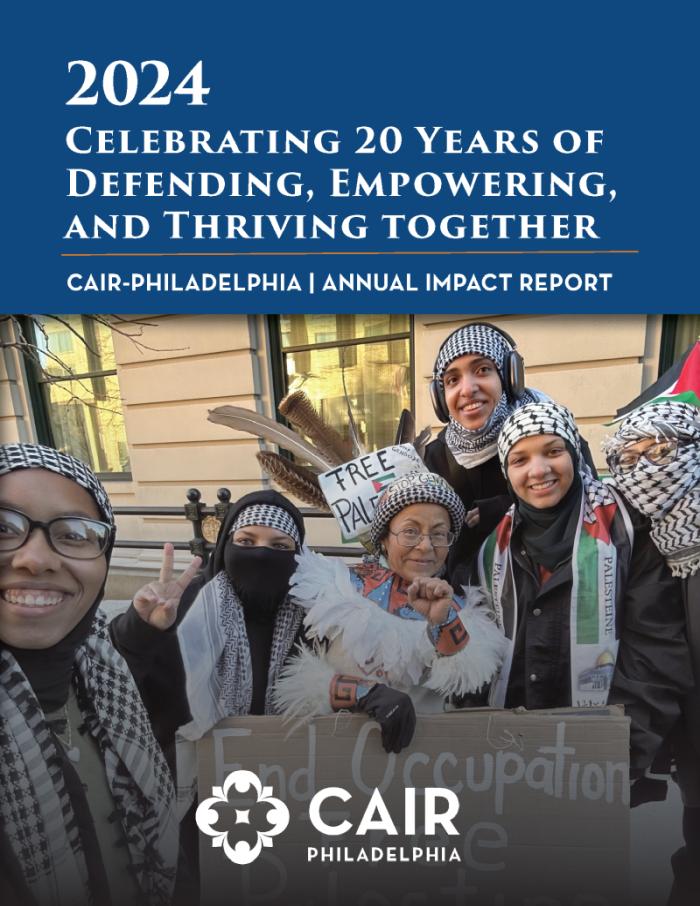Ramadan is a sacred time of year for our community; however, our office often observes an increase in anti-Muslim bias during this time each year. Particularly, in recent days, we have received several reports from employees and students from across the area who have expressed confusion around their rights during this time.
CAIR-Philadelphia is here to support you as observe Ramadan. We have answers to our most common questions below. If you continue to experience difficulties, or have additional questions, please contact our office for more support.
Does my employer have to provide religious accommodations during Ramadan?
In most instances, the answer is yes. Title VII of the 1964 Civil Rights Act protects against religious discrimination, particularly as it relates to employment. Employers are required to accommodate an employee’s “sincerely held religious beliefs,” which includes making a religious accommodation for the employee as long as the accommodation does not impose an “undue hardship.” The law defines an undue hardship as more than a “minimal burden” to the business’ operation. This applies to employers with 15 or more employee and the federal government as an employer.
This means, among many things, that: employers may not require the removal of religious head coverings and may not require the shaving of religious beards.
Do schools have to provide religious accommodations during Ramadan?
The answer here depends. Title VII provides that students in public schools must follow federal law and state law, which requires them to provide a religious accommodation for students so long as it does not impose an undue hardship or substantial interference to the school day. This includes supporting Muslims to make salat, wear hijabs (or other head coverings). Public schools may not also deny admission or services to students based on their religion as well.
Are private K-12 schools subject to same accommodation requirements as public schools?
Private K-12 schools do not have the same legal obligations to provide religious accommodations. With this said, students should still make a request to the school in hopes of receiving the desired religious accommodation. Additionally, no school official should ever forcibly remove a student’s religious head covering or devalue their religious beliefs. In recent cases, we observe an erroneous attempt at framing providing religious accommodations as promotion of a particular religion. This is not the case for either a charter or a denominational school setting. We caution private religious schools to be mindful of not harming inter religious respect through careless statements and steps.
We have resources available to allow you to make requests for Eid/Ramadan accommodations, along with information you may provide to your employer or school regarding Ramadan and fasting. As always, please reach out to CAIR-Philadelphia for a legal consultation if you have a concern: pa.cair.com/report and 267-515-6710.





